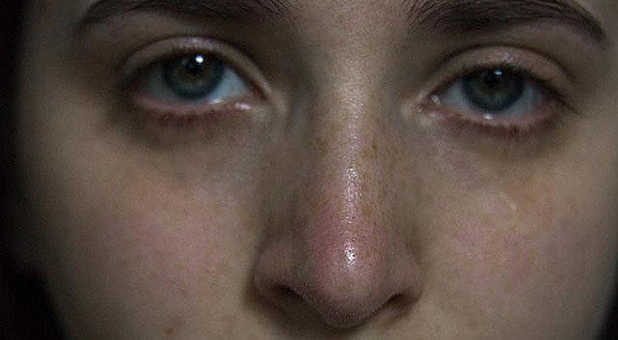“Look, she’s calling you Mommy!” said a beautifully well-intentioned friend, wanting to celebrate just how quickly we’d become a family.
My little girl was building with Legos in the corner, and her less-than-nimble fingers needed help fitting them together. She called me Mommy when she was hungry and when she needed help in the bathroom, too.
We adopted our first two children from Ethiopia at 1 ½ and 3 ½. We were their parents, and they came to us potty-trained. We were parents, yet we’d never changed diapers or done 3 a.m. feedings. The first day we met them, the only words they knew in English were “Mommy” and “Daddy”—and for all they knew, these were our first names.
I remember this friend’s celebratory words because I wanted to celebrate as she did. Couldn’t calling me Mommy mean my little girl knew all of what that name meant? Couldn’t it mean we were more of a family than a mere three weeks of knowing one another might otherwise imply?
As a new mom, then just having crested my twenties, adoption was what I’d seen on Christmas cards and in “Gotcha Day” videos where teary-eyed parents met the children they would spend their lives raising, and wide-eyed children met strangers holding gifts and crying.
Sure, I’d read the adoption literature. I knew the stories. But I was still not all that different from my friend. When my daughter called me Mommy, I ascribed more weight to those words than to the soon-coming fight to win her to a knowledge of the fierce love behind that name.
Our language betrays how quickly we want to declare victor, to move past pain.
When we adopted our first two, scores of friends and family members wanted to agree with what we’d already hoped—that the transition would be smooth and that any past trauma would have left little imprint. We all wanted that piece of the vacuous American dream, “healthy and happy children.” Secretly, we all wanted “normal.”
So my little girl—the one I’d only just met—calls me Mommy. And we all breathe a sigh of relief, as if this somehow indicates we are well on our way to that empty and elusive state of normal.
Mommy is a tender responder to ouchies who fiercely fights for the hearts of her children and is relentless in her love for them, even when they hurt her out of their own hurt. But what I didn’t know at 30 was the reasons the ones who called me mommy (we now have four adopted children) might struggle to believe me, as these are entry-points for all of us into the heart of God.
As a culture, we want to stamp “done” and “fixed” over the things that hurt and the parts of us that still bleed. We want to bandage deep wounds without cleaning them first and label “complete” over the areas that still need His healing touch.
We want to celebrate a child who calls her caretaker Mommy as if this one day on which they were adopted means all the past was forever erased.
And this is, perhaps, because we don’t yet have a grid for God as the deep healer of our wounds.
He heals.
We don’t want to bleed because we’re not yet quite convinced that He, Himself, bandages.
Perhaps we are called (in James 1:27) to care for the orphan and the widow because something happens to us when we get closer to a wound that’s still bleeding. We are opened to a side of God we cannot see when we’re spending our days trying to tidy our lives before Him who promises to be near to those who aren’t all that tidy, the God who promises to be near to the broken-hearted.
Not too long after we adopted our second two, my husband said to me (about one of ours with a history that still leaves me in tears), “You know, you weren’t all that different from her when I first met you.”
Excuse me?
This particular child bristled upon touch and averted her eyes when confronted with affection. She retreated down a long corridor of vacancy when she felt shame, and shame seemed to be what she wore no matter how we spoke otherwise to her.
When my husband met me at 23, I was more savvy. I hid the emotions my child wore front and center. I stuffed them down deep, far from sight—except to those who were on a path to really know me. Indeed, under my carefully-groomed exterior, I was messy.
These children who are now ours, but who were once orphaned, have brought our home a little closer to the mess. Not just their mess, but closer to the mess inside of us, the mess we Christians like to tidy as fast as we can.
James 1:27 has not been, to us, a call to powerful and strong believers wearing badges of rescue and saving the broken ones. Instead, it’s been our introduction to the way we humans—all of us—bleed. And, even more than that, to the God who uses this place of bleeding as an entry point into our hearts.
I couldn’t begin to know Him as Healer until I admitted my desperate need for healing. In that, I’m just a few steps ahead of my children.
That’s the bloodline we share. {eoa}
Sara is a wife to Nate and a mother of five whose arms stretched wide across the expanse between the United States and Africa. After almost a decade of Christian life, she was introduced to pain and perplexity and, ultimately, intimacy with Jesus. God met and moved her when life stopped working for her. And out of the overflow of this perplexity came her writing, both on her blog and in her book, Every Bitter Thing Is Sweet.
Blog Link: http://everybitterthingissweet.com/
Book Link: http://everybitterthingissweet.com/book/
Instagram Link: http://instagram.com/everybitterthingissweet












